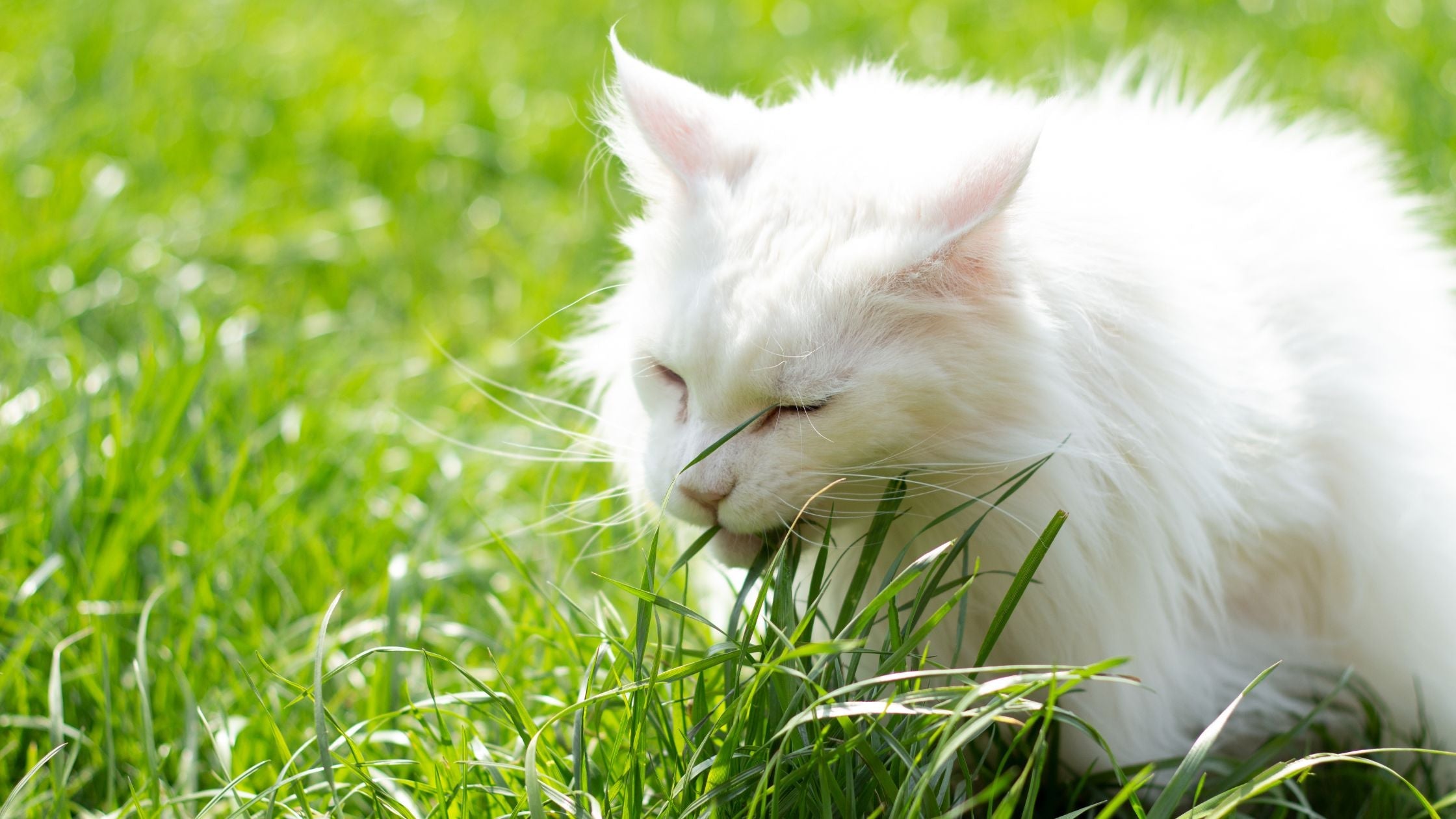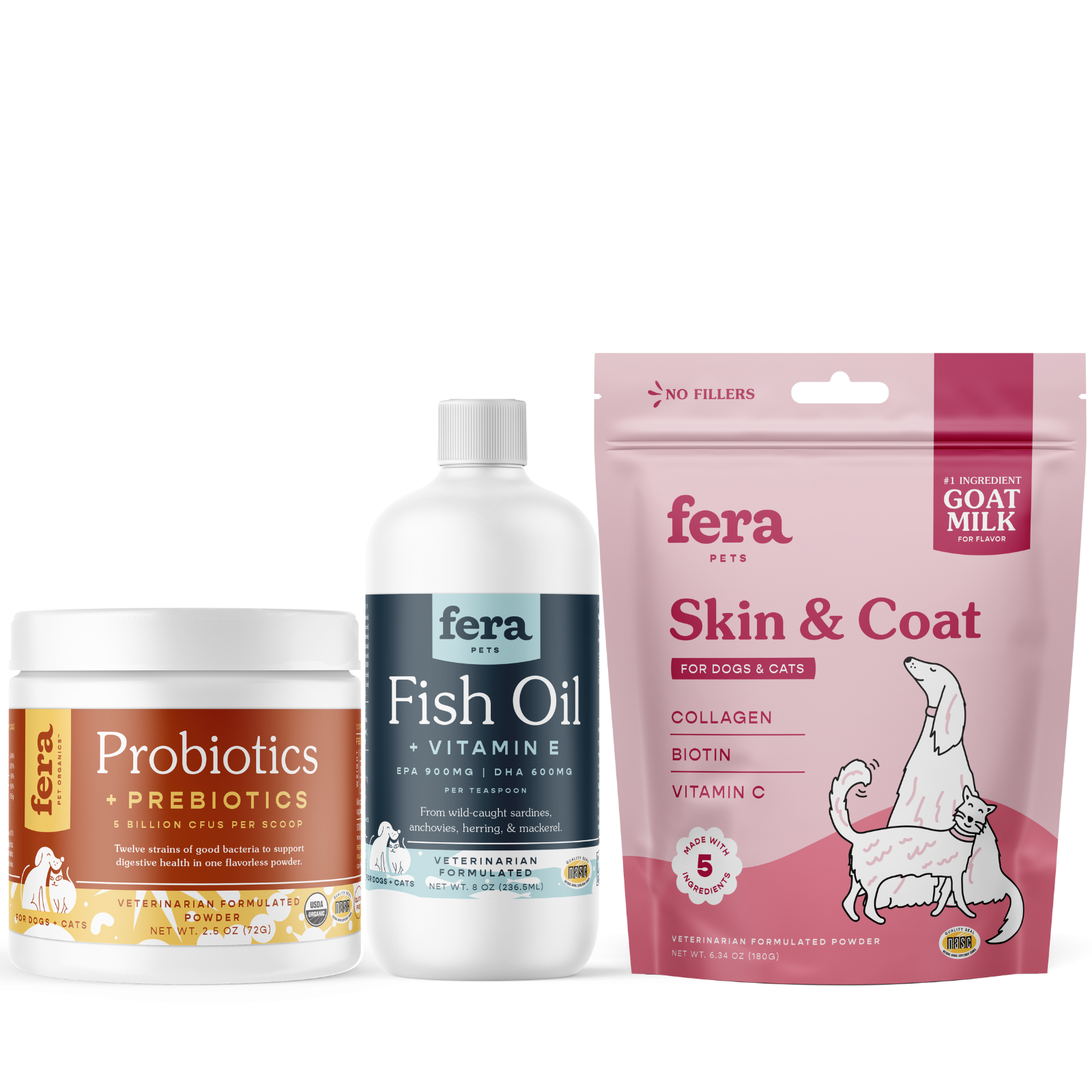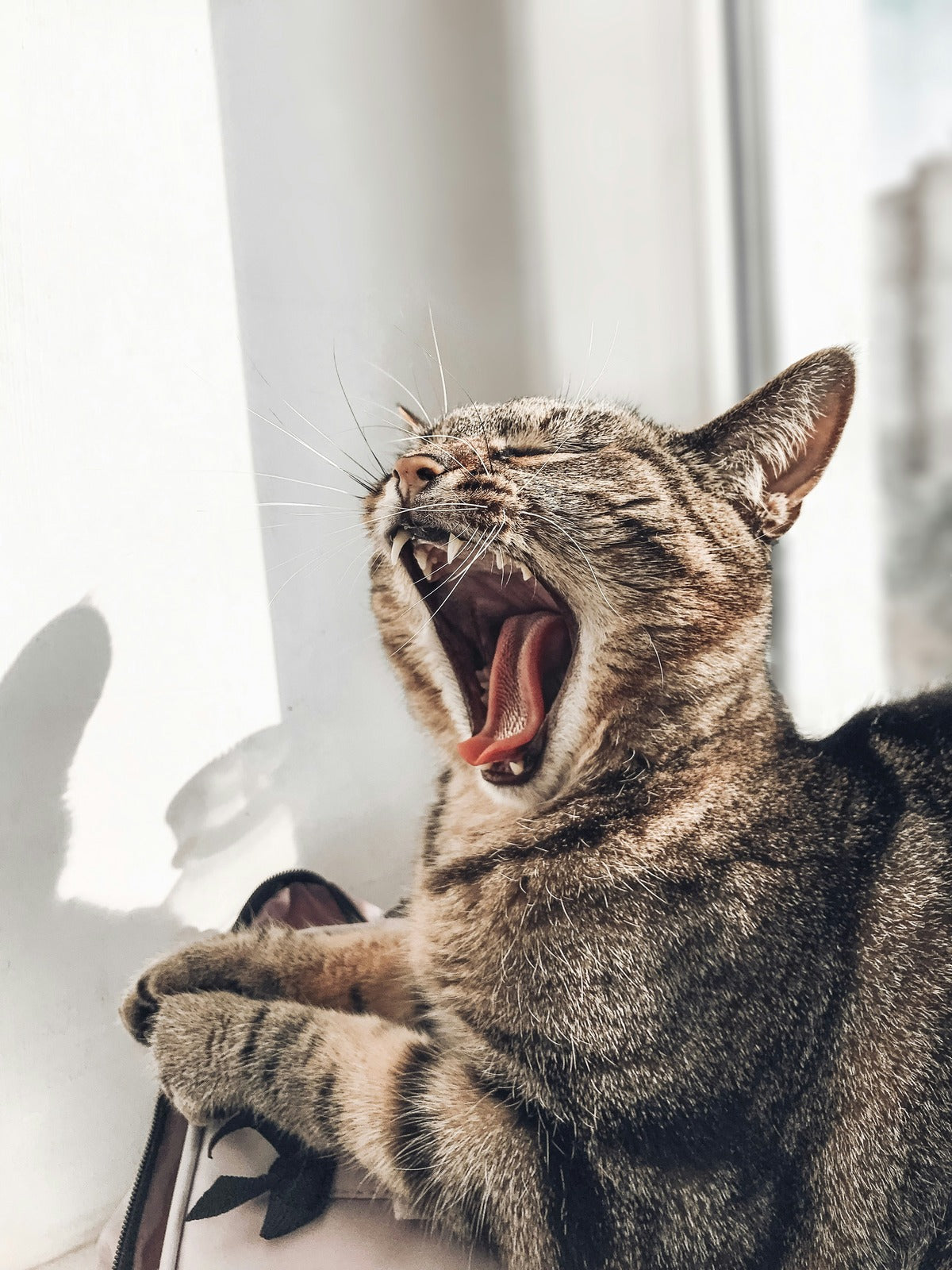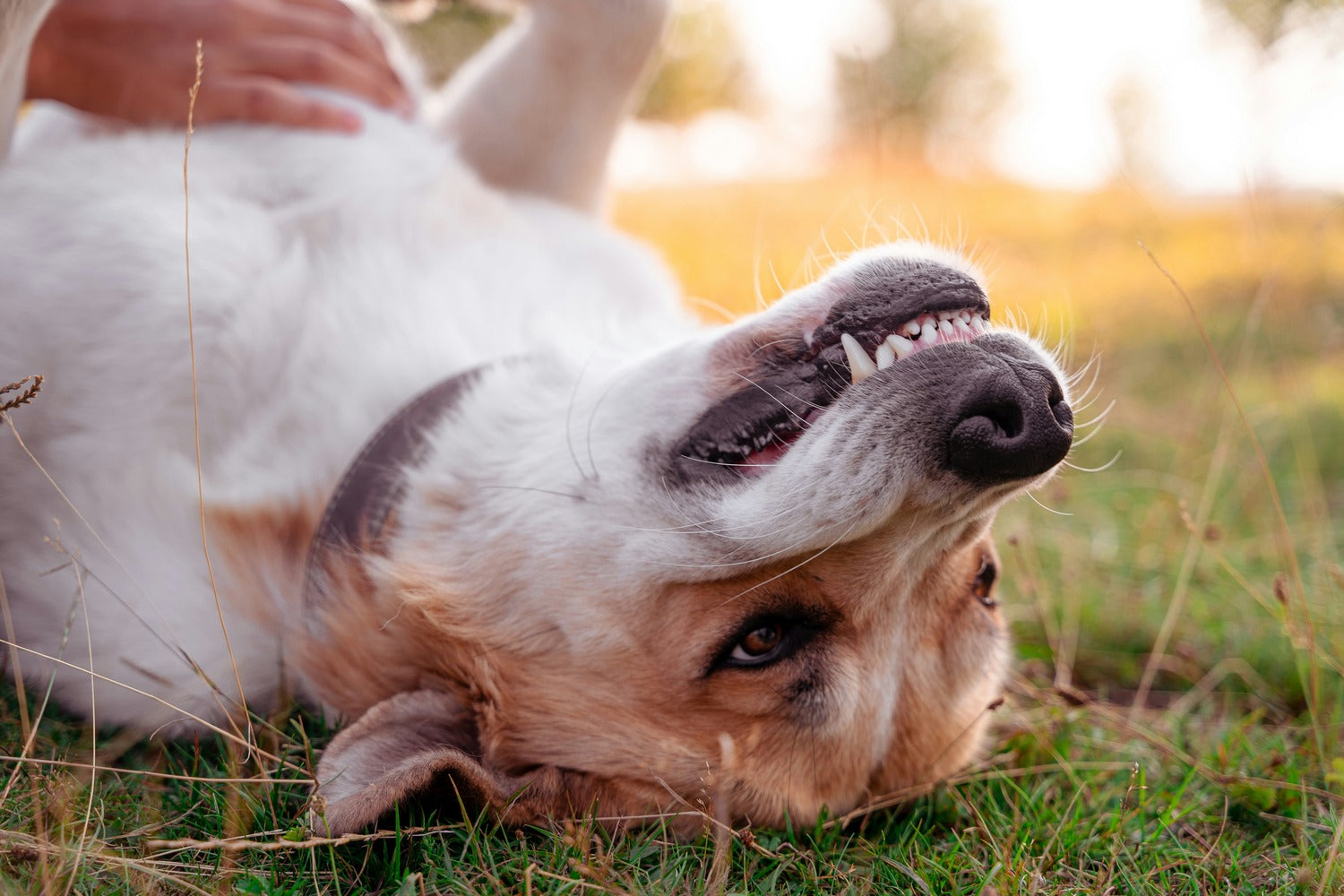8 Purrfect Hairball Remedies for Your Feline Friends
Experience frequent feline hairball hassles? It's time for natural solutions! Learn the hairball remedies I recommend for my own patients to minimize hairballs and optimize your cat’s gut health. Say goodbye to hairballs and hello to a healthier, happier cat.
Hairballs are a common feline nuisance that most cat parents will experience more than once throughout their pet’s life. If these wads of hair have become a frequent occurrence in your home, it might be time to implement some natural solutions.
These are the hairball remedies I recommend for my own patients to minimize hairballs and keep your cat’s gut health in tip-top shape.
Understanding Hairballs
Cats are meticulous groomers, so it’s not uncommon for them to ingest loose fur as they go about their daily beauty routine. Most of this fur passes through their digestive system and gets eliminated naturally. However, some hair may accumulate in the stomach and form hairballs.
Hairballs are cylindrical masses of hair mixed with digestive fluids. When they grow too large or can't pass through the cat's digestive tract, they may cause discomfort and result in vomiting.
While occasional hairballs are normal, chronic hairball issues can indicate an underlying problem and should be addressed promptly.
8 of the Best Hairball Remedies
1. Pet Supplements
Your cat’s gut health plays an essential role in hairball control. A healthy digestive system can move anything they ingest, including loose fur, through the stomach for proper digestion.
A cat that struggles with excessive hairballs may need a boost in probiotics and fiber. Luckily, many pet supplements deliver these essential nutrients straight to your pet’s food bowl.
Here are just a couple of options from Fera Pet Organics that are formulated with clean and effective ingredients you can trust:
- USDA Organic Probiotics with Prebiotics: This powdered blend of probiotics and prebiotics will keep your feline friend’s digestive system humming along as it should. I personally hand-picked 12 living strains of good bacteria with a powerful dosing of 5 billion CFUs to bring perfect balance to your pet’s microbiome.
- Pumpkin Plus Fiber Support: Pumpkin is packed with vital vitamins and nutrients for pets, fiber included! Each scoop of this powdered supplement is sure to alleviate discomfort caused by hairballs, stomach aches, constipation, diarrhea, and more.
2. Specialized Hairball Control Cat Food
In addition to pet supplements, switching to a cat food formulated specifically for hairball control is a great way to prevent them from the inside.
Many cat food brands offer specialized hairball control formulas that contain higher levels of fiber. When choosing such a diet, make sure it's suitable for your cat's age, size, and specific dietary needs. Also, don’t forget to discuss your cat’s new diet with your veterinarian.
3. Reduce Stress and Anxiety
Stress and anxiety can lead to excessive grooming in cats, which, in turn, can increase hairball formation. Ensure your cat's environment is comfortable and enriching, with plenty of toys, scratching posts, and cozy resting spots.
If you suspect your cat is stressed or anxious, you can also implement a calming pet supplement to help promote relaxation and steady their nerves.
4. Regular Grooming
Cats typically take care of their own appearance, but it never hurts to give them an extra brushing for good measure.
Combing through your cat's fur not only helps remove loose hair they would otherwise ingest, but it also stimulates blood circulation and promotes healthier skin and coat. Make sure to choose a brush that's suitable for your cat's fur type, whether short or long.
A gentle brushing session a few times a week can significantly reduce the amount of hairballs your cat leaves around the house. Plus, it can be an excellent bonding activity between you and your furry companion.
5. Hairball Remedies and Treats
If your cat is often hacking up hairballs and showing signs of discomfort, more aggressive treatments may be necessary.
There are various over-the-counter hairball remedies and treats designed to help prevent hairball formation. These products often contain lubricants or mild laxatives that assist in moving hair through the digestive system more smoothly. Some also come in delicious flavors, making it easier to administer to your cat.
Just be sure to follow the recommended dosage instructions when using hairball remedies and treats. Consult your veterinarian if you're unsure which product is suitable for your cat or if your cat has underlying health issues.
6. Increase Water Intake
Ensuring your cat stays well-hydrated is another crucial step in preventing hairballs. Water helps lubricate the digestive tract and makes it easier for the cat's body to pass ingested hair. Always provide fresh, clean water for your cat, and consider using a pet water fountain if your feline friend is not drinking enough.
If your cat is not a fan of plain water, you can try adding a small amount of low-sodium chicken broth to encourage them to drink more. However, consult your vet before making any significant dietary changes.

7. Cat Grass
Cat grass is a natural and safe way to help your cat deal with hairballs. Cats are instinctively drawn to eating grass, which can help induce vomiting and expel hairballs from their stomachs.
You can buy cat grass kits at most pet stores or grow your own at home. Make sure to provide fresh cat grass regularly, and monitor your cat's consumption to prevent overindulgence. While it's generally safe, excessive ingestion of cat grass can lead to digestive upset.

8. Regular Vet Check-ups
Regular veterinary check-ups are crucial for your cat's overall health, including addressing hairball remedies. They can assess your companion’s condition, recommend specific solutions, and rule out any underlying health problems that may contribute to excessive hairball formation.
If your cat's hairball issues are persistent, severe, or accompanied by other symptoms such as lethargy, loss of appetite, or changes in behavior, seek immediate veterinary attention.
Support Your Cat’s Health and Wellness the Natural Way
Say goodbye to pet supplements created with questionable ingredients. At Fera Pet Organics, we’re committed to setting a new standard for our furry friends’ health, and that starts with what we feed them.
Explore our full collection of supplements for cats, each made with high-quality ingredients backed by science, and don’t forget to subscribe to our newsletter to enjoy member-only deals, new product launches, and more.






